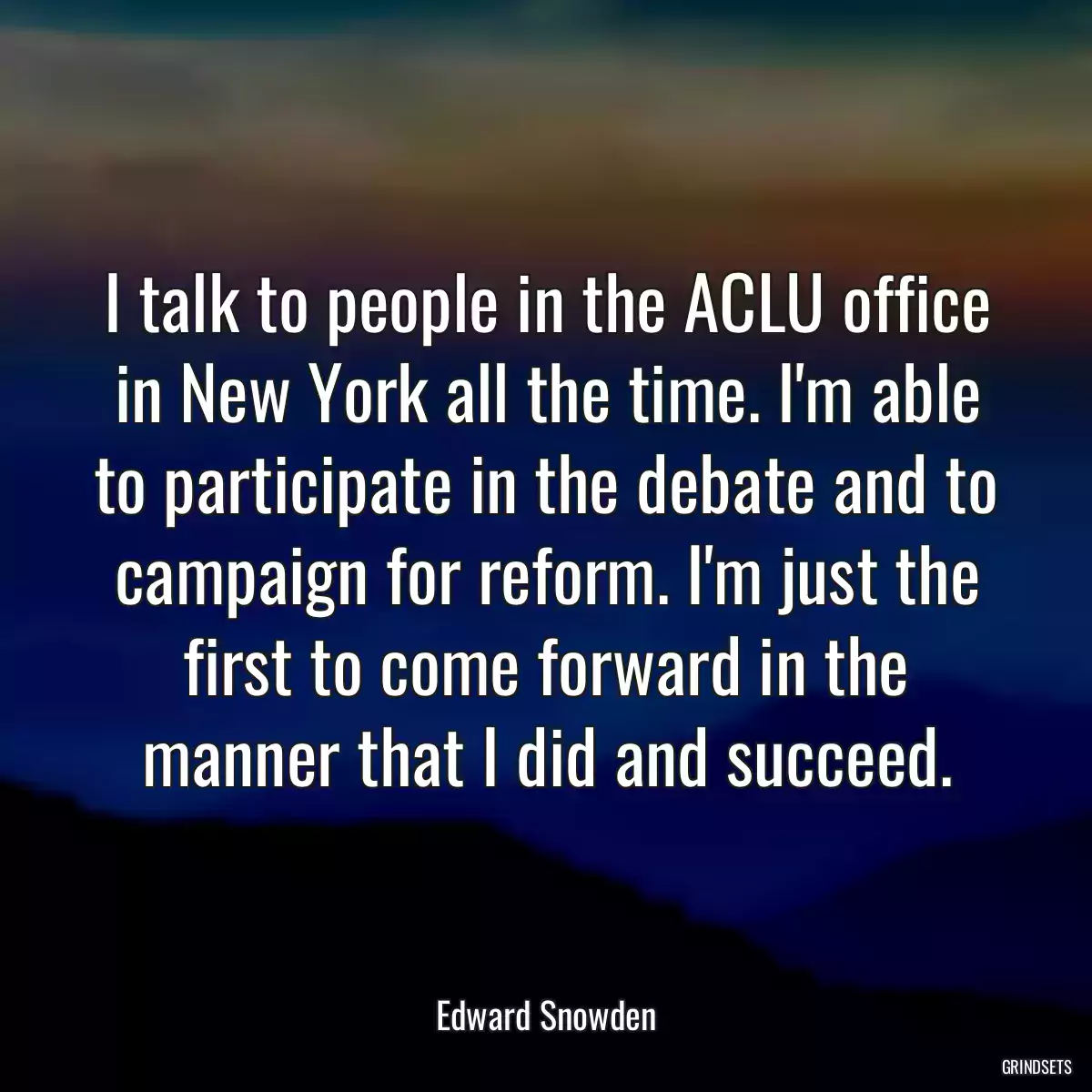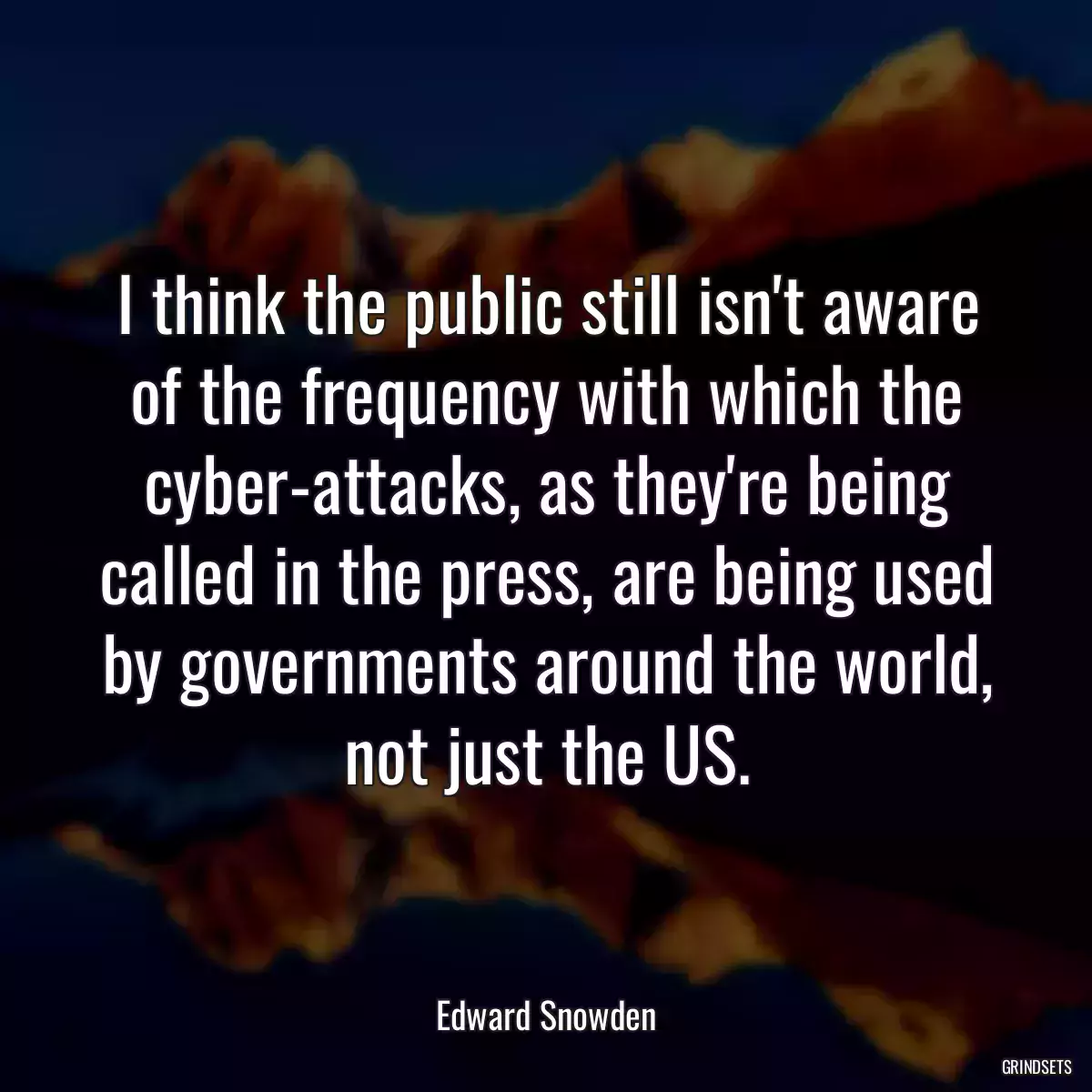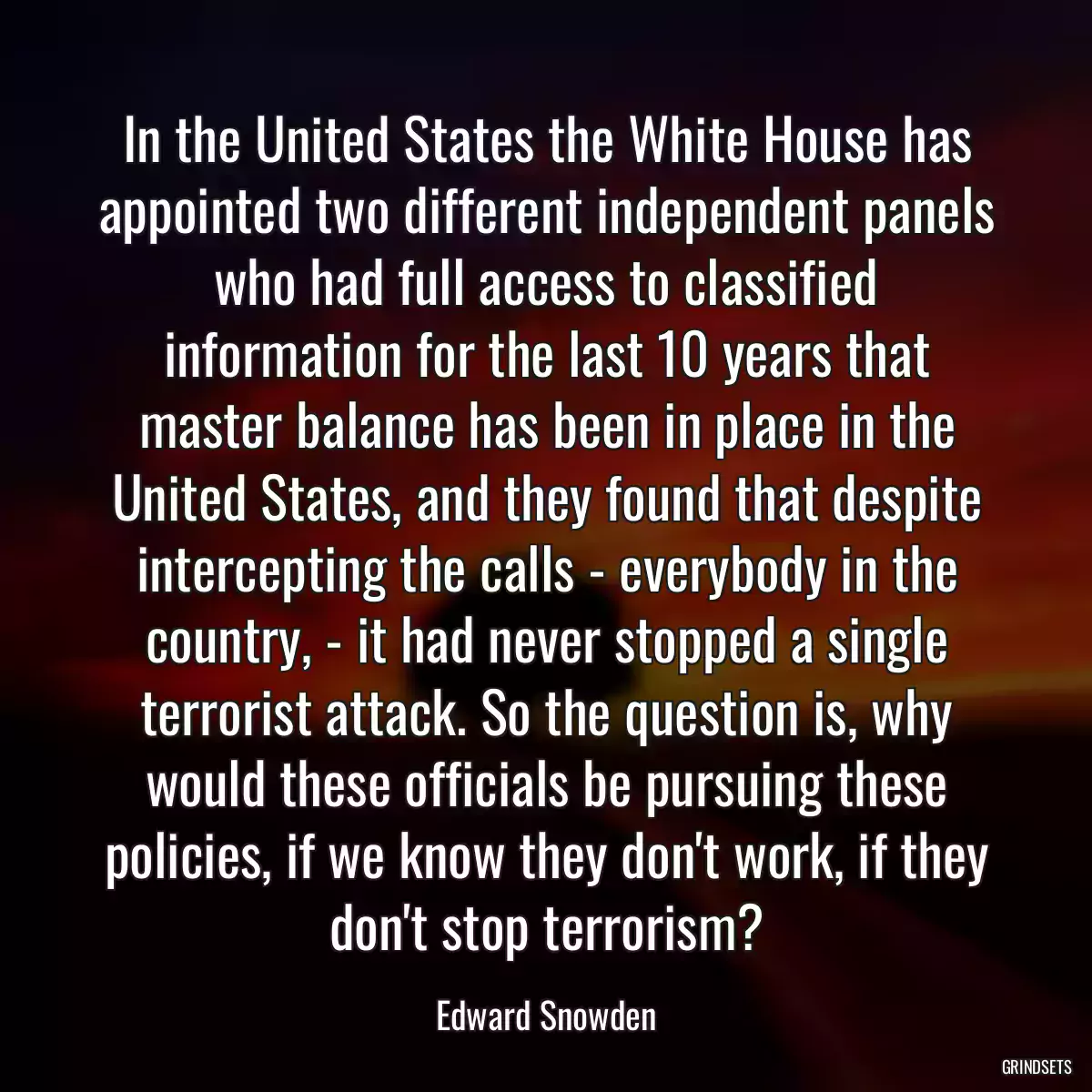
Quotes Edward Snowden - page 2
Find dozens of Edward Snowden with images to copy and share.

Do you check it when you travel, do you check it when you're just at home? They'd be able to tell something called your 'pattern of life.' When are you doing these kind of activities? When do you wake up? When do you go to sleep? What other phones are around you when you wake up and go to sleep? Are you with someone who's not your wife?
The only thing I fear is the harmful effects on my family, who I won't be able to help any more. That's what keeps me up at night.
For me, in terms of personal satisfaction, the mission's already accomplished. I already won. As soon as the journalists were able to work, everything that I had been trying to do was validated. Because, remember, I didn't want to change society. I wanted to give society a chance to determine if it should change itself.
You may also like
The US government is not going to be able to cover this up by jailing or murdering me. Truth is coming, and it cannot be stopped.
All I wanted was for the public to be able to have a say in how they are governed. That is a milestone we left a long time ago.
When you think about the abolition of slavery for example, for the ruling class with the rich white people owning plantations and states, and things like that, slavery was to their benefit. To oppose it didn't make any sense at all on a rational basis. But on a rights basis, on a principle basis, it made obvious, overwhelming sense.
From the very beginning, I said there are two tracks of reform: there's the political and the technical. I don't believe the political will be successful, for exactly the reasons you underlined. The issue is too abstract for average people, who have too many things going on in their lives.
Suspicionless surveillance has no place in a democracy. The next 60 days are a historic opportunity to rein in the NSA, but the only one who can end the worst of its abuses is you. Call your representatives and tell them that the unconstitutional 'bulk collection' of Americans' private records under Section 215 of the Patriot Act must end.

By creating a self-policing, self-reporting, sort of self-monitoring culture through law, through statute, and imposing that on the academic world, I think not only are we losing a significant measure of freedom in academic traditions and in our civil society, but we're actually making ourselves less competitive with every other country around the world that does not do that. Because that's where researchers are going to go and that's where academics are going to go. And ultimately, that's where breakthroughs are going to occur.
You can't come up against the world's most powerful intelligence agencies and not accept the risk. If they want to get you, over time they will.
Congress hasn't declared war on the countries - the majority of them are our allies - but without asking for public permission, NSA is running network operations against them that affect millions of innocent people. And for what? So we can have secret access to a computer in a country we're not even fighting?
The internet exchange is sort of the core points where all of the international cables come together, where all of the internet service providers come together, and they trade lines with each other. These are priority one targets for any sort of espionage agency, because they provide access to so many people's communications.
There are proxies, proxy servers on the internet, and this is very typical for hackers to use. They create what are called proxy chains where they gain access to a number of different systems around the world, sometimes by hacking these, and they use them as sort of relay boxes.
The bare bones tools for a cyber-attack are to identify a vulnerability in the system you want to gain access to or you want to subvert or you want to deny, destroy, or degrade, and then to exploit it, which means to send codes, deliver code to that system somehow and get that code to that vulnerability, to that crack in their wall, jam it in there, and then have it execute.
If an NSA, FBI, CIA, DIA, etc analyst has access to query raw SIGINT databases, they can enter and get results for anything they want. Phone number, email, user id, cell phone handset id (IMEI), and so on - it's all the same.
One concern I had while I was working actively in the intelligence community - being someone who had broad access, who was exposed to more reports than average individuals, who had a better understanding of the bigger picture - was that the post - World War II, post - Cold War directions of societies were either broadly authoritarian or [broadly] liberal or libertarian.
You may also like

In the United States the White House has appointed two different independent panels who had full access to classified information for the last 10 years that master balance has been in place in the United States, and they found that despite intercepting the calls - everybody in the country, - it had never stopped a single terrorist attack. So the question is, why would these officials be pursuing these policies, if we know they don't work, if they don't stop terrorism?
Imagine, if you will, you're sitting at my desk in Hawaii. You have access to the entire world, as far as you can see it. Last several days, content of internet communications. Every email that's sent. Every website that's visited by every individual. Every text message that somebody sends on their phone. Every phone call they make.